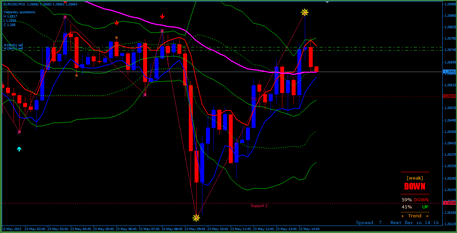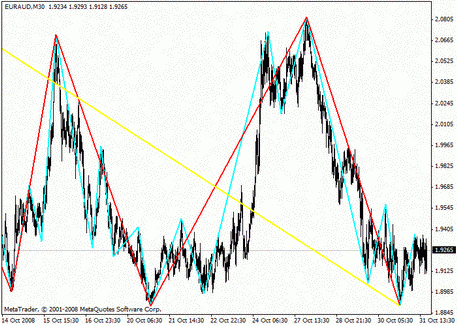
Support & Resistance Strategy
Wednesday, 3 January 2018 10:19
Support & Resistance Strategy is one of the most commonly used trading methods in the Forex market. It is used both independently and in combination with other methods. Any novice trader knows about the levels of support and resistance. They allow revealing the direction of price movement, as well as evaluating a range of the chart fluctuations. To understand this strategy, we will consider these levels in more detail.
Fundamentals of Strategy
- Support is a line below the chart. The price does not go down lower than this line;
- Resistance is a line above the price curve. It does not go up higher than this line.

As a rule, the chart bounces from them, but it can sometimes break them through. Then, support becomes resistance and vice versa. It can be explained by traders’ mindset, as well as by the subjective nature of this tool. It marks those zones, where the participants of the market change their opinion. When the price reaches a certain mark, it is regarded by Bears as too low for selling the asset. Similarly, Bulls lose the will to buy when the chart reaches a certain maximum value. The trading strategy suggests using these values for entering the market in either direction.
These zones are also characterized by the desire of traders who have not guessed the development of dynamics, to minimize their losses. During the breakdown, traders are waiting until the price reverts to the value, according to which the transactions were opened, and then close them. Therefore, those traders who traded in reverse, exit the market, and a new trend gets stronger.
Trading by Support & Resistance Strategy
Given these particularities, it is easy to make a conclusion about the principle of closing a transaction. You can follow a rebound trading, waiting for the price to rollback in the opposite direction. Alternatively, you can follow a breakdown trading, opening transactions in the direction of the new trend.
- In the first case, sales are opened when the resistance level is reached, and purchases are at support levels. Support & Resistance Strategy better suits a relatively quiet market, where the asset price does not show a strong, directed movement. It is worth noting that any level, sooner or later, turns out to be broken through. The most reliable are those schemes that you construct on longer timeframes.
- Implementation of the breakdown strategy involves opening Sell orders when support breaks down, and Buy orders when resistance breaks down. It is important to note that even if the level was broken, the chart can test it a few more times. Moreover, it can be back into the range. For this reason, by using this strategy, it is important to be able to identify the genuineness of the breakdown. Such a tactic is best suited for the trend market conditions.
It is evident that not so many traders are limited only to one of these methods. In general, traders change their behavior, regardless of conditions.
Features of Strategy
There are many techniques for constructing Support/Resistance. We will consider the most popular one, which is the building on two closest minimums/maximums. At the same time, pay attention to the biggest candlesticks.

Stop Losses are placed near the opening point. A Take Profit during the rebound trading is set near the opposite border of the range; in the case of the breakdown, trading it is set according to personal preferences of the trader.
Do not forget that Support & Resistance Strategy involves risk. You never can be 100% certain about the price behavior near these key zones. We recommend testing the method on a demo account before starting real trading. Also, you can mix up trading with various indicators, and combine the lines with other methods.
Share
Related articles
- Previous article: Best methods to identify trends using MQL5 tools in 2018 year
- Next article: Archer Strategy – recommendations on opening orders

 English
English
 русский
русский




